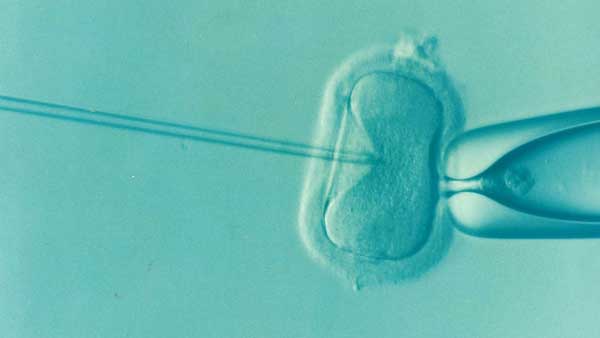Egg freezing is no longer limited to women with infertility or medical problems

[Infertility. Photo Credit to Pixabay]
In recent years, the demand for egg freezing among Indian women has risen sharply, with reports indicating up to a 50% increase in procedures over the past five years.
Many women in major Indian cities like Bengaluru, Mumbai, Delhi, and Hyderabad are increasingly opting for egg freezing not only for medical reasons, but also to prioritize their careers or wait for the right partner.
Historically, egg freezing was primarily available to individuals facing fertility challenges or undergoing cancer treatment that could affect reproductive health. Today, however, the procedure has expanded to include single women and those postponing family planning, who often view it as a form of reproductive "insurance" for the future.
Many women prioritize professional development during their twenties and early thirties, but this often coincides with the biological reality that female fertility declines dramatically after age 35.
This timing creates a dilemma for those who want both professional advancement and biological children.
Egg freezing offers an opportunity for women to preserve their reproductive potential by storing viable eggs for future use.
The procedure is most effective when performed at a younger age, when egg quality and quantity are at their peak.
The science behind this approach is simple: as women age, both the number and quality of their eggs decrease.
By freezing eggs during their younger years, women can improve their chances of successful conception in later years.
For example, a woman who freezes her eggs at 30 and attempts pregnancy at 40 would use eggs with the biological characteristics of her 30-year-old self, rather than those of a 40-year-old.
This flexibility means women are not bound by societal expectations to marry or have children early.
Instead, they can focus on career, education, or personal circumstances before starting a family.
However, the decision comes with substantial financial considerations.
In 2025, the procedure typically costs between 125,000 to 250,000 INR, with annual storage fees ranging from 12,000 to 25,000 INR.
For those freezing a larger number of eggs to maximize future chances of conception, total expenses can exceed 626,000 INR.
There are also medical risks.
The process requires hormone injections, which in some cases can lead to Ovarian Hyperstimulation Syndrome (OHSS).
Symptoms may include abdominal swelling, nausea, weight gain, and in severe cases, breathing difficulties or blood clots.
Even though serious complications are rare, mild side effects are relatively common.
The surgical retrieval of eggs also carries a small risk of infection, bleeding, or injury to surrounding organs.
Egg freezing has evolved from being a procedure largely associated with medical necessity to one chosen for personal and lifestyle reasons.
More women in their twenties and thirties are using it as a tool to take control of their reproductive timelines.
Still, medical experts emphasize that there is no guarantee of a successful pregnancy.
They advise prospective patients to consider both the physical and financial aspects carefully, and to consult with qualified specialists before proceeding.
As awareness grows, egg freezing is increasingly viewed as both a medical intervention and a strategic option for women seeking to align personal aspirations with future family planning.

- Sean Jung / Grade 10 Session 3
- Eric Hamber Secondary School

![THE HERALD STUDENT REPORTERS [US]](/assets/images/logo_student_us.png)
![THE HERALD STUDENT REPORTERS [Canada]](/assets/images/logo_student_ca.png)
